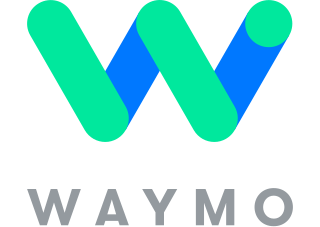
The School of Computer Science (SCS) at Carnegie Mellon University in Pittsburgh, Pennsylvania, US is a school for computer science established in 1988. It has been consistently ranked among the best computer science programs over the decades. As of 2024 U.S. News & World Report ranks the graduate program as tied for No. 1 with Massachusetts Institute of Technology, Stanford University and University of California, Berkeley.

SRI International (SRI) is a United States-based nonprofit scientific research institute and organization headquartered in Menlo Park, California. It was established in 1946 by trustees of Stanford University to serve as a center of innovation to support economic development in the region.

The Robotics Institute (RI) is a division of the School of Computer Science at Carnegie Mellon University in Pittsburgh, Pennsylvania, United States. A June 2014 article in Robotics Business Review magazine calls it "the world's best robotics research facility" and a "pacesetter in robotics research and education."

An AI takeover is an imagined scenario in which artificial intelligence (AI) emerges as the dominant form of intelligence on Earth and computer programs or robots effectively take control of the planet away from the human species, which relies on human intelligence. Stories of AI takeovers have been popular throughout science fiction, but recent advancements have made the threat more real. Possible scenarios include replacement of the entire human workforce due to automation, takeover by a superintelligent AI (ASI), and the notion of a robot uprising. Some public figures, such as Stephen Hawking and Elon Musk, have advocated research into precautionary measures to ensure future superintelligent machines remain under human control.
Business process automation (BPA), also known as business automation, refers to the technology-enabled automation of business processes.
Mubadala Investment Company PJSC, or simply Mubadala, is a state-owned global investment and asset management company that acts as one of the sovereign wealth funds of the government of Abu Dhabi. The company was established in 2017 when then-named Mubadala Development Company and the International Petroleum Investment Company (IPIC) merged. Headquartered in Abu Dhabi, Mubadala also has offices in London, Rio de Janeiro, New York, San Francisco and Beijing.
The ethics of artificial intelligence covers a broad range of topics within the field that are considered to have particular ethical stakes. This includes algorithmic biases, fairness, automated decision-making, accountability, privacy, and regulation. It also covers various emerging or potential future challenges such as machine ethics, lethal autonomous weapon systems, arms race dynamics, AI safety and alignment, technological unemployment, AI-enabled misinformation, how to treat certain AI systems if they have a moral status, artificial superintelligence and existential risks.
Romesh T. Wadhwani is an Indian-American billionaire, businessman and head of investment firm SAIGroup. He is the former chairman and CEO of Symphony Technology Group, a private equity firm for software, Internet and technology services companies. He established the Wadhwani Foundation for economic development in emerging economies, with an initial focus on India. Initiatives in India include the National Entrepreneurship Network.

Waymo LLC, formerly known as the Google Self-Driving Car Project, is an American autonomous driving technology company headquartered in Mountain View, California. It is a subsidiary of Alphabet Inc.

Ambarella, Inc. is an American fabless semiconductor design company, focusing on low-power, high-definition (HD) and Ultra HD video compression, image processing, and computer vision processors. Ambarella's products are used in a wide variety of human and computer vision applications, including video security, advanced driver assistance systems (ADAS), electronic mirror, drive recorder, driver and in-cabin monitoring, autonomous driving, and robotics applications. Ambarella's system on chips (SoCs) are designed to deliver a combination of video compression, image processing, and computer vision performance with low-power operation to enable cameras to extract data from high-resolution video streams.

James J. Kuffner Jr. is an American roboticist and chief executive officer (CEO) of Woven by Toyota. Dr. Kuffner is also Chief Digital Officer and a member of the Board of Directors of Toyota Motor Corporation. Kuffner continues to serve as an Adjunct Associate Professor at the Robotics Institute at Carnegie Mellon University and as Executive Advisor to Woven by Toyota. Kuffner earned a Ph.D. from the Stanford University Dept. of Computer Science Robotics Laboratory in 1999.
From 2014 until 2024, Apple undertook a research and development effort to develop an electric and self-driving car, codenamed "Project Titan". Apple never openly discussed any of its automotive research, but around 5,000 employees were reported to be working on the project as of 2018. In May 2018, Apple reportedly partnered with Volkswagen to produce an autonomous employee shuttle van based on the T6 Transporter commercial vehicle platform. In August 2018, the BBC reported that Apple had 66 road-registered driverless cars, with 111 drivers registered to operate those cars. In 2020, it was believed that Apple was still working on self-driving related hardware, software and service as a potential product, instead of actual Apple-branded cars. In December 2020, Reuters reported that Apple was planning on a possible launch date of 2024, but analyst Ming-Chi Kuo claimed it would not be launched before 2025 and might not be launched until 2028 or later.

Argo AI LLC was an autonomous driving technology company headquartered in Pittsburgh, Pennsylvania. The company was co-founded in 2016 by Bryan Salesky and Peter Rander, veterans of the Google and Uber automated driving programs. Argo AI was an independent company that built software, hardware, maps, and cloud-support infrastructure to power self-driving vehicles. Argo was mostly backed by Ford Motor Co. (2017) and the Volkswagen Group (2020). At its peak, the company was valued at $7 billion.

Raquel Urtasun is a professor at the University of Toronto. Urtasun uses artificial intelligence, particularly deep learning, to make vehicles and other machines perceive the world more accurately and efficiently.
A military artificial intelligence arms race is an arms race between two or more states to develop and deploy lethal autonomous weapons systems (LAWS). Since the mid-2010s, many analysts have noted the emergence of such an arms race between superpowers for better military AI, driven by increasing geopolitical and military tensions.
aiMotive is an autonomous vehicle technology company. The company aims to work with automotive manufacturers and Tier1s to enable automated technologies. aiMotive describes its approach as "vision-first", a system that primarily relies on cameras and artificial intelligence to detect its surroundings. The technology is designed to be implemented by automobile manufacturers to create autonomous vehicles, which can operate in all conditions and locations. In September 2017, PSA Group teamed up with AImotive.

A self-driving truck, also known as an autonomous truck or robo-truck, is an application of self-driving technology aiming to create trucks that can operate without human input. Alongside light, medium, and heavy-duty trucks, many companies are developing self-driving technology in semi trucks to automate highway driving in the delivery process.
Luminar Technologies Inc. is an American technology company that develops vision-based lidar and machine perception technologies, primarily for self-driving cars. The company's headquarters and main research and development facilities are in Orlando, Florida; a second major office is located in Palo Alto, California.
Plus is an American autonomous trucking technology company based in Santa Clara, California. The company develops Level 4 autonomous trucking technology for commercial freight trucks. In 2019, the company completed the first cross-country driverless freight delivery in the U.S. The company's self-driving system began to be used commercially in 2021.

Woven by Toyota, Inc. is the mobility technology subsidiary of Toyota Motor Corporation, creating and managing the software for Toyota's vehicle operating system, automated driving, and safety. It has an investment fund, Woven Capital.











